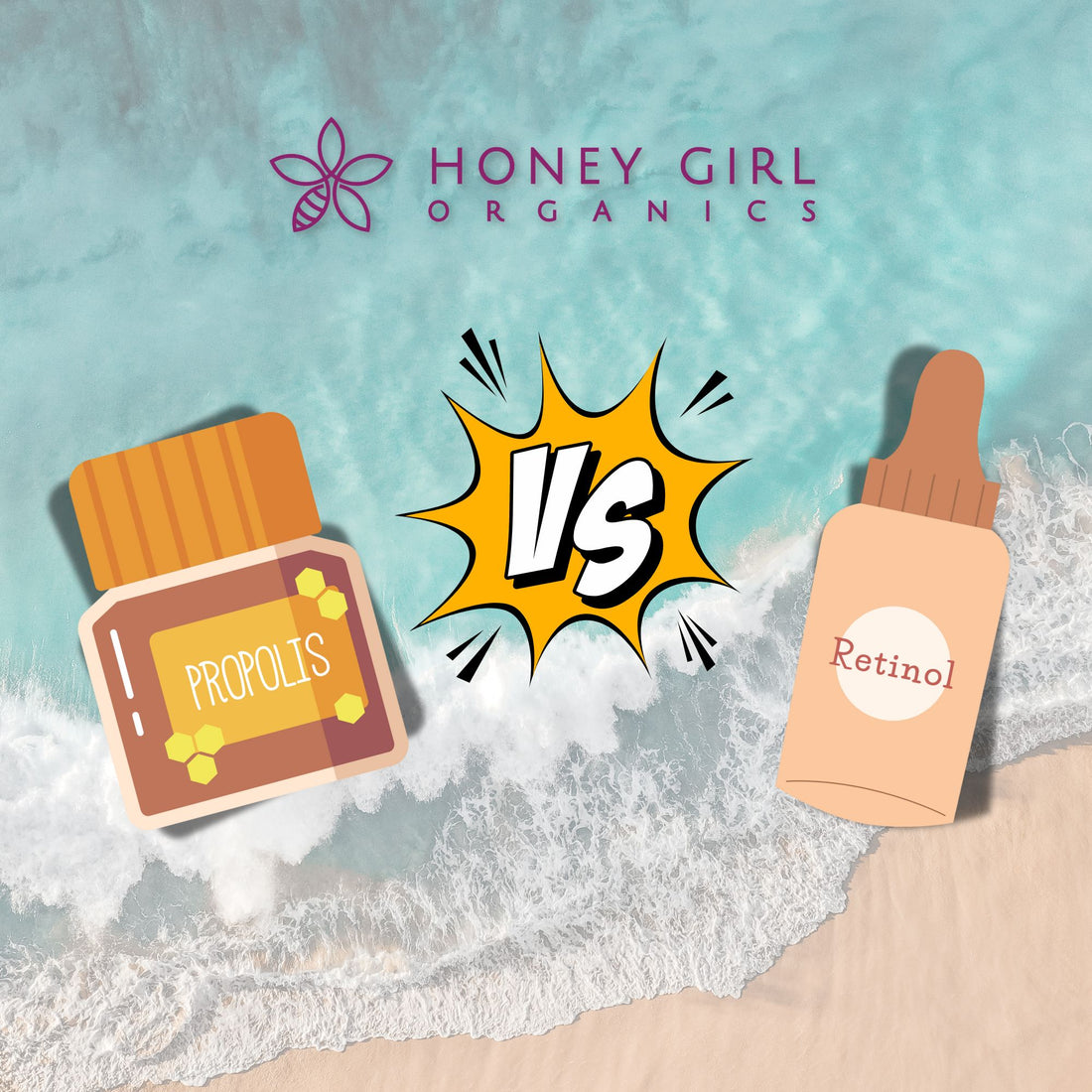
Topical Effects of Propolis vs. Retinol: A Detailed Comparison
Share
When it comes to skincare, both Propolis and Retinol are highly renowned for their powerful effects. However, they offer distinct benefits and may suit different skin types and concerns.
Propolis: Nature’s Healing Resin

-
Anti-Inflammatory & Antimicrobial
Propolis is a resinous substance collected by bees from tree buds and sap flows. It is rich in flavonoids, which are potent antioxidants, and possesses strong anti-inflammatory and antimicrobial properties. Propolis helps to soothe irritated skin, reduce redness, and prevent infections, making it particularly beneficial for acne-prone and sensitive skin.
-
Skin Barrier Support and Wound Healing
Propolis excels at supporting the skin’s natural barrier function. It helps to enhance the skin’s resilience against environmental stressors, preventing moisture loss and keeping the skin hydrated. Its wound-healing properties are well-documented, making it effective in treating minor cuts, burns, and even acne scars. The natural composition of Propolis makes it gentle on the skin, reducing the risk of irritation.
-
Rich in Antioxidants
The flavonoids and phenolic acids in Propolis provide robust antioxidant protection, neutralizing free radicals that can cause premature aging. This helps to maintain a youthful complexion and protects the skin from the damaging effects of pollution and UV radiation.
Retinol: The Synthetic Anti-Aging Powerhouse

-
Promotes Cell Turnover and Collagen Production
Retinol, a derivative of Vitamin A, is widely celebrated for its anti-aging benefits. It works by accelerating cell turnover, shedding dead skin cells, and promoting the growth of new ones. Retinol also stimulates collagen production, which helps to reduce the appearance of fine lines and wrinkles, resulting in smoother, firmer skin.
-
Exfoliation and Skin Renewal
Retinol acts as a powerful exfoliant, helping to unclog pores and improve skin texture. It’s particularly effective for addressing hyperpigmentation, uneven skin tone, and signs of aging. However, this exfoliating action can also lead to dryness, flakiness, and increased sensitivity, especially during initial use.
-
Potential for Irritation and Sensitivity
One of the drawbacks of Retinol is its potential to cause irritation, especially for those with sensitive skin. Common side effects include redness, peeling, and an increased susceptibility to sunburn. For this reason, Retinol is often recommended to be used at night, followed by diligent sunscreen application during the day.
Why Choose Propolis Over Retinol?

-
Gentle on Sensitive Skin
Propolis is naturally gentle and soothing, making it suitable for all skin types, including sensitive skin. Unlike Retinol, which can cause irritation and dryness, Propolis calms inflammation, reduces redness, and provides moisture without disrupting the skin’s natural barrier.
-
Antimicrobial and Healing Benefits
For those struggling with acne or other skin irritations, Propolis offers antimicrobial benefits that help to keep the skin clear of bacteria while promoting healing. Retinol, while effective at treating acne, can sometimes exacerbate irritation and dryness, potentially leading to further breakouts.
-
Hydration and Skin Barrier Support
Propolis helps to maintain the skin’s moisture levels and supports the skin barrier, preventing trans-epidermal water loss (TEWL). This is crucial for maintaining healthy, supple skin. Retinol, by contrast, can compromise the skin barrier, leading to dryness and increased sensitivity.
-
Antioxidant Protection
Propolis is rich in natural antioxidants that protect the skin from environmental damage, helping to prevent premature aging. While Retinol also provides anti-aging benefits, it does so through a more aggressive mechanism that may not be suitable for everyone, especially those with sensitive or reactive skin.


